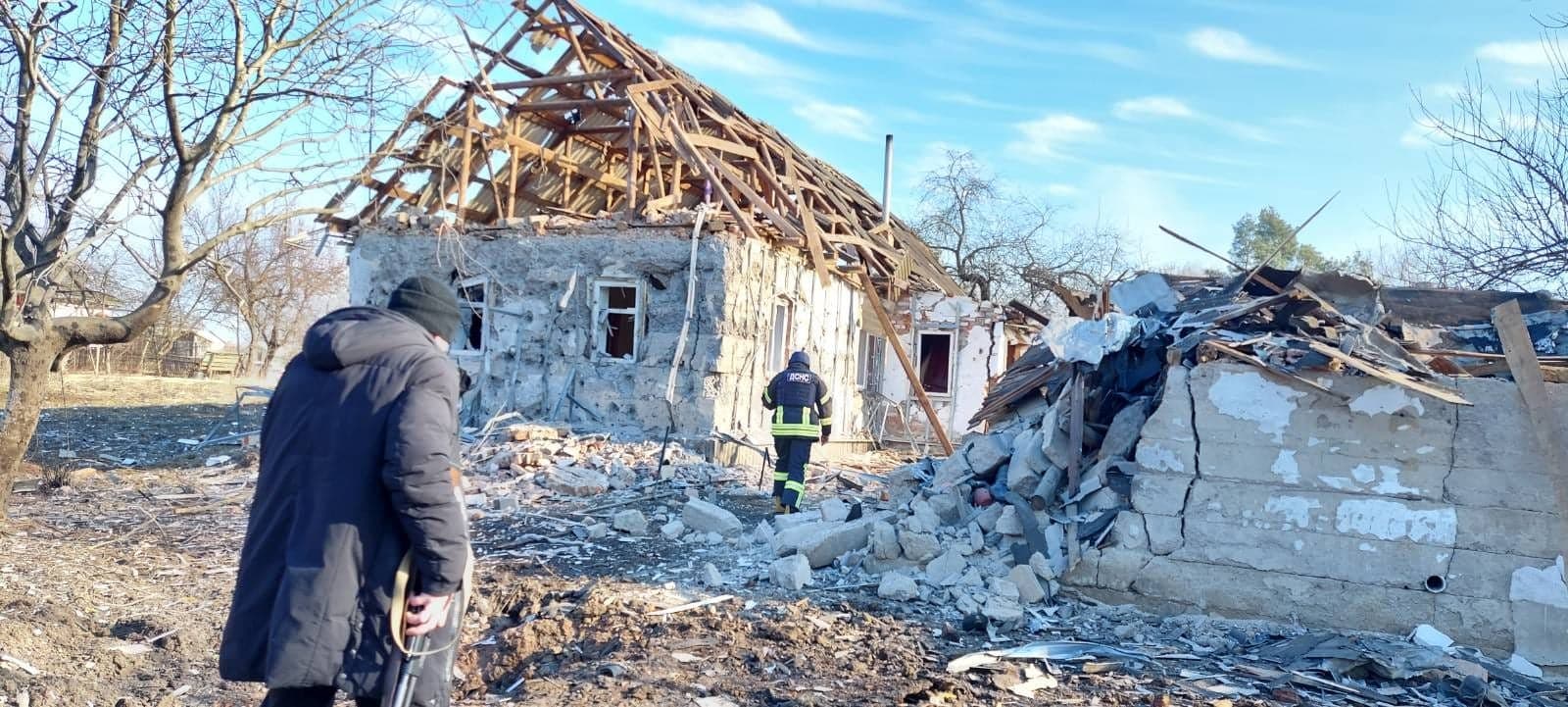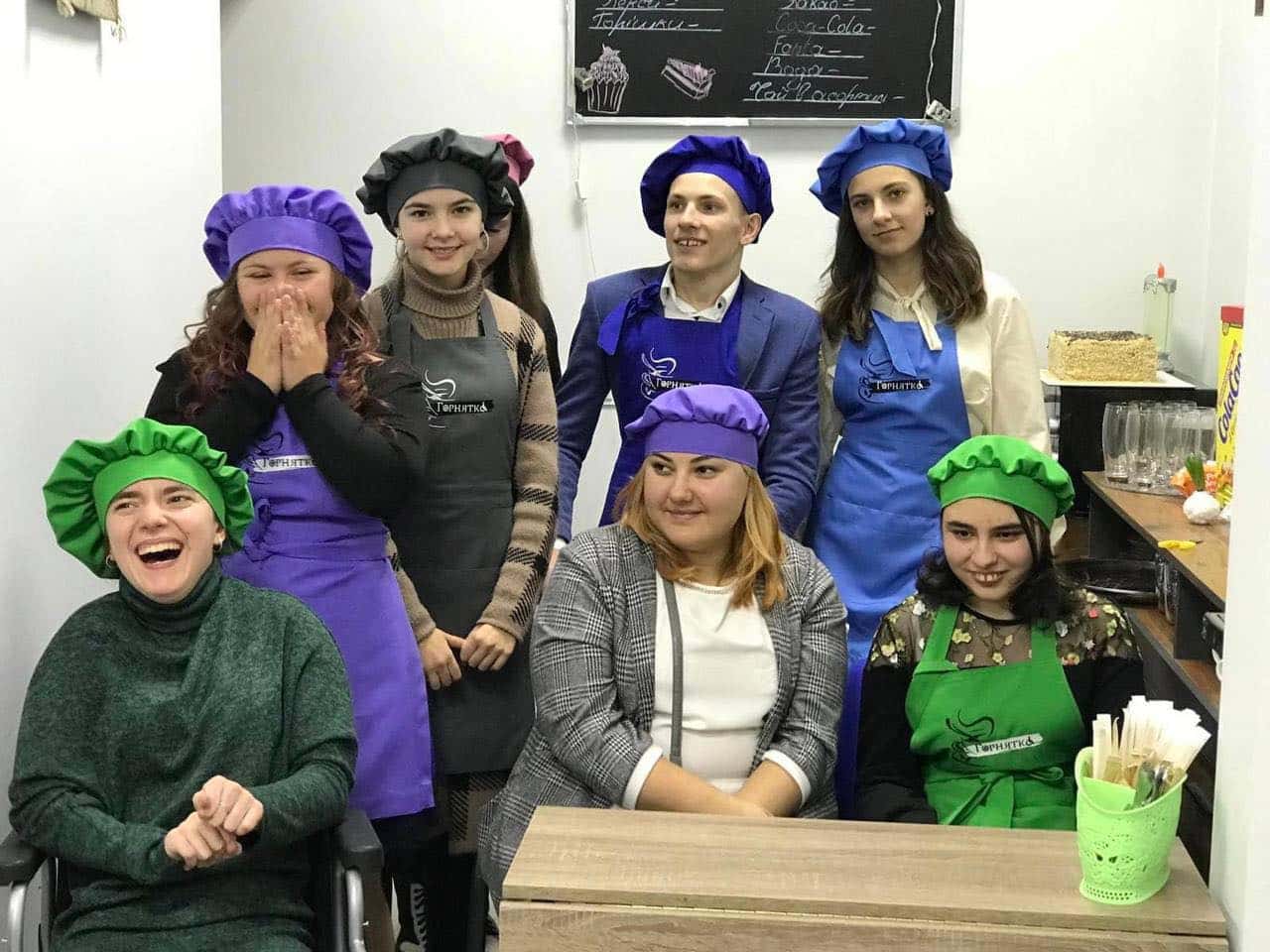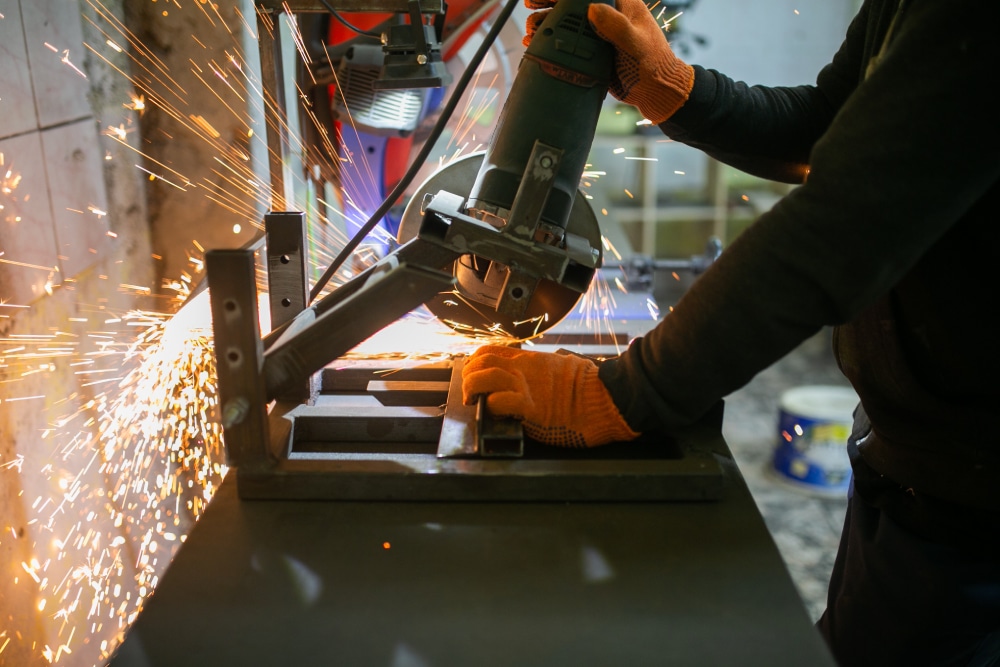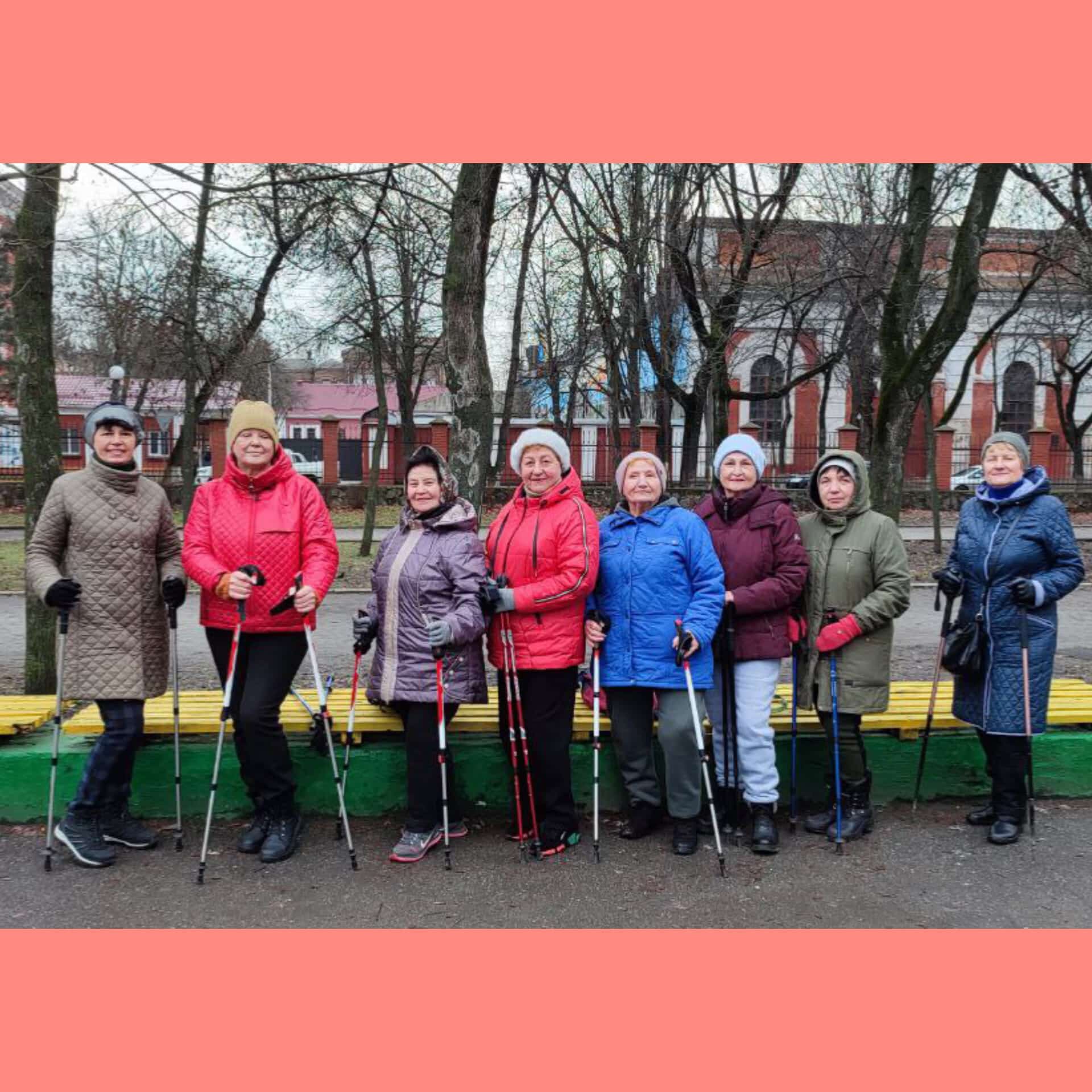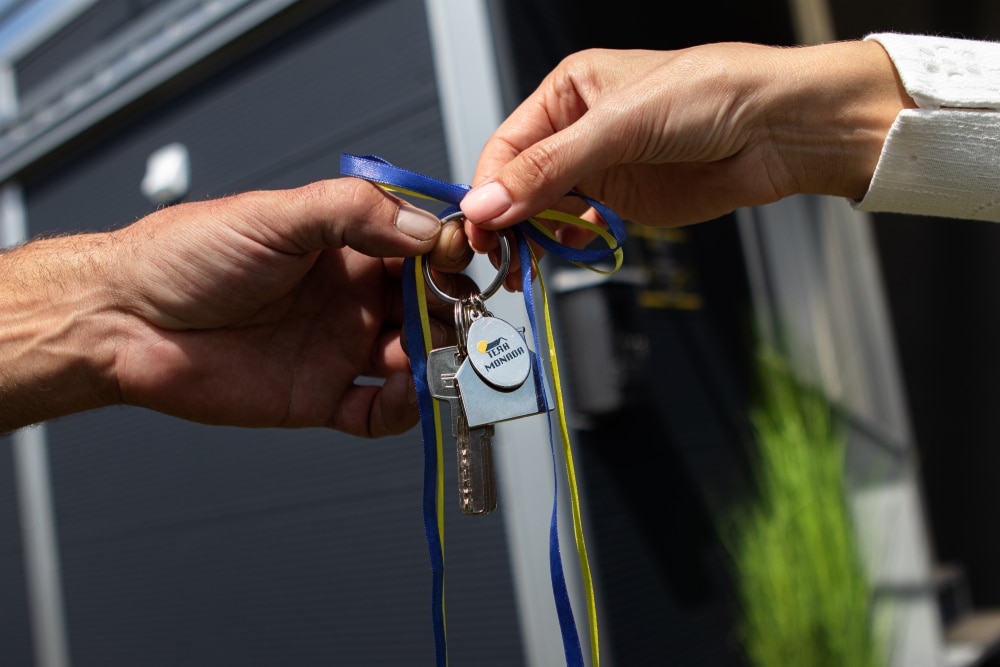In their recent photos on social media, you can see the ordinary life of young people: hiking, travelling abroad, festivals. Lots of fun, laughter, and drive. In the past month and a half, their photos have changed: cars full of boxes and packages, burning houses, military uniforms, and field roads; pictures of immobilized tanks and ruins left behind by Russian troops.
This is a story about a Kyiv group of friends who have known each other since childhood: they grew up together in the yard, fished on the lake, and played football. Nowadays, they deliver humanitarian aid around Kyiv and nearby settlements and provide the Armed Forces of Ukraine with equipment. When Chernihiv was under siege, they were taking people out of the city. They provided food, medicine, generators, and other necessities for those who stayed.
Read below how to help others while risking your life.
The base
We are talking on the base. It is a spacious apartment near the city center. One volunteer’s relatives let them use this space to get together and coordinate their work. They spend nights at the base, eat, and plan trips there. High walls and stylish chandeliers contrast with the current military look of the apartment: mattresses and sleeping bags on the floor, berets in the corridors. The group unpacks a large light-green suitcase — the aid of the US-based sister of Vitaly, one of the volunteers here. Now everyone will get bulletproof vests and helmets. They try it on, laugh, and kindly joke about each other like old friends. They are about the same age, up to 30, and have been friends for a long time. Someone even grew up together in the yard.
There are 7-8 people living in the apartment, and everyone is busy with something. Some of them are looking for helmets and thermal imagers. Others are exploring routes to provide help. Another group communicates with other volunteers to learn people’s needs.
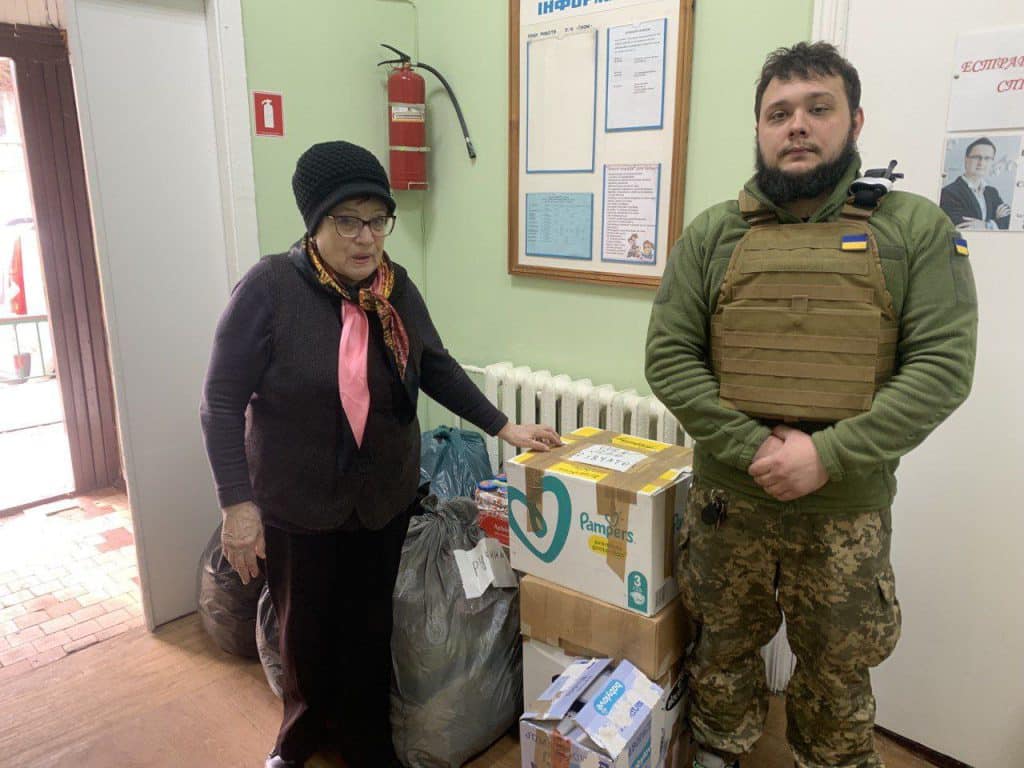
These guys started thinking about helping others in the first days of the war after they sent their families to safer places. Because the longer you scroll through and read the news, the more helpless you feel. They did not want to be aside. Vlad Gorin has been to the military commissariat twice, and both times he didn’t get an answer. Vitaly Lisunov spent the first two weeks with one of the capital’s territorial defense forces. Then, he says, he got bored standing at a checkpoint and checking passports. Kostya Goncharenko, a professional logistician, also wanted to help (he is the one who found the apartment).
They started calling various volunteer organizations, but no one really answered. After that, they began contacting hospitals. Volunteers found out that senior people in Brovary needed food, as supermarkets did not work there. They bought or took hot lunches from restaurants and delivered them: to metro stations in Kyiv, the surrounding villages, and the distribution points for the elderly. They managed to borrow three cars from their friends. Also, it was crucial to respond to the needs of the Armed Forces of Ukraine: to help with fuel or something else.
Then they found out that people from the besieged Chernihiv desperately needed evacuation. The volunteers decided to help.
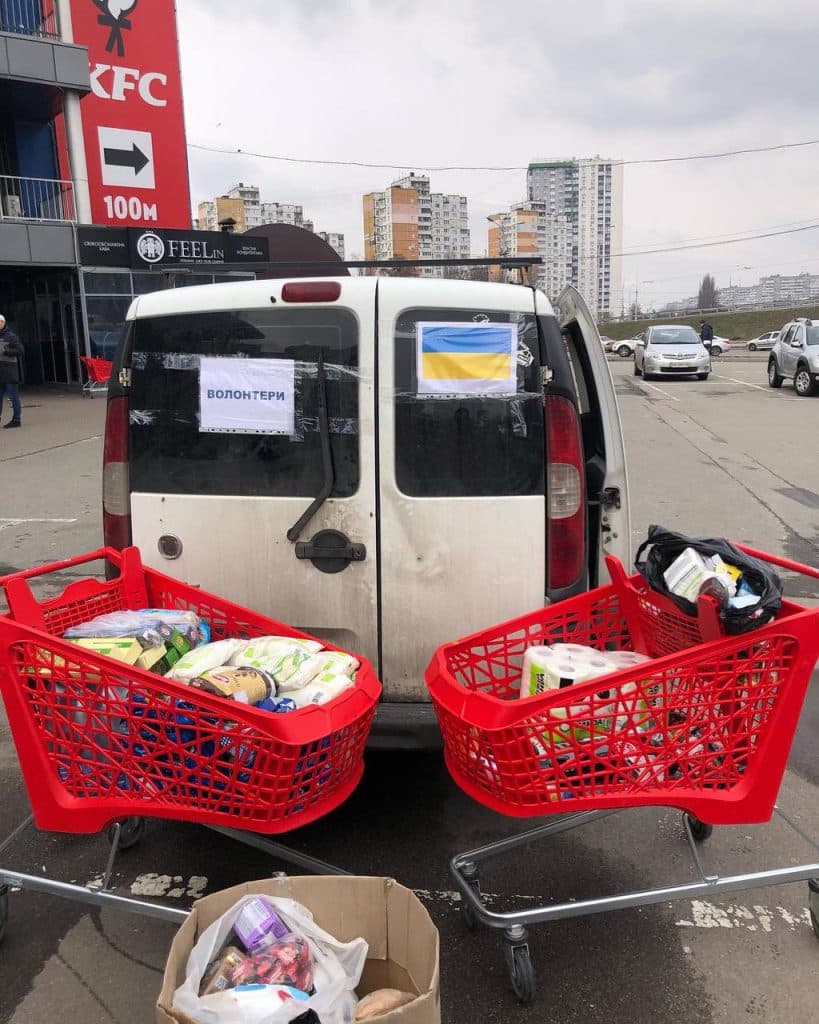
The first message was from an acquaintance. Her mother and her dogs stayed in the besieged city. There was no electricity, water, and gas in Chernihiv at that time. Having explored the route and checked all checkpoints, the guys set off. They wrote in advance to the telegram group “Evacuation, Chernihiv” that they could help. Ten minutes later, 25 people asked for evacuation. There was no signal there. Therefore, relatives of people trapped in Chernihiv told volunteers where to go.
Chernihiv in those March days was full of smoke, fire, and destruction. People cooked food on the open fire in the yards, balconies, or stairwells. They collected water from fire hydrants, carried by buckets and bicycles. The shell falls — people bend down. When shelling stops, people get up again and continue living their lives. Under constant shelling, people died from bullets and shells — and the city’s lack of food, heat, and medicine.
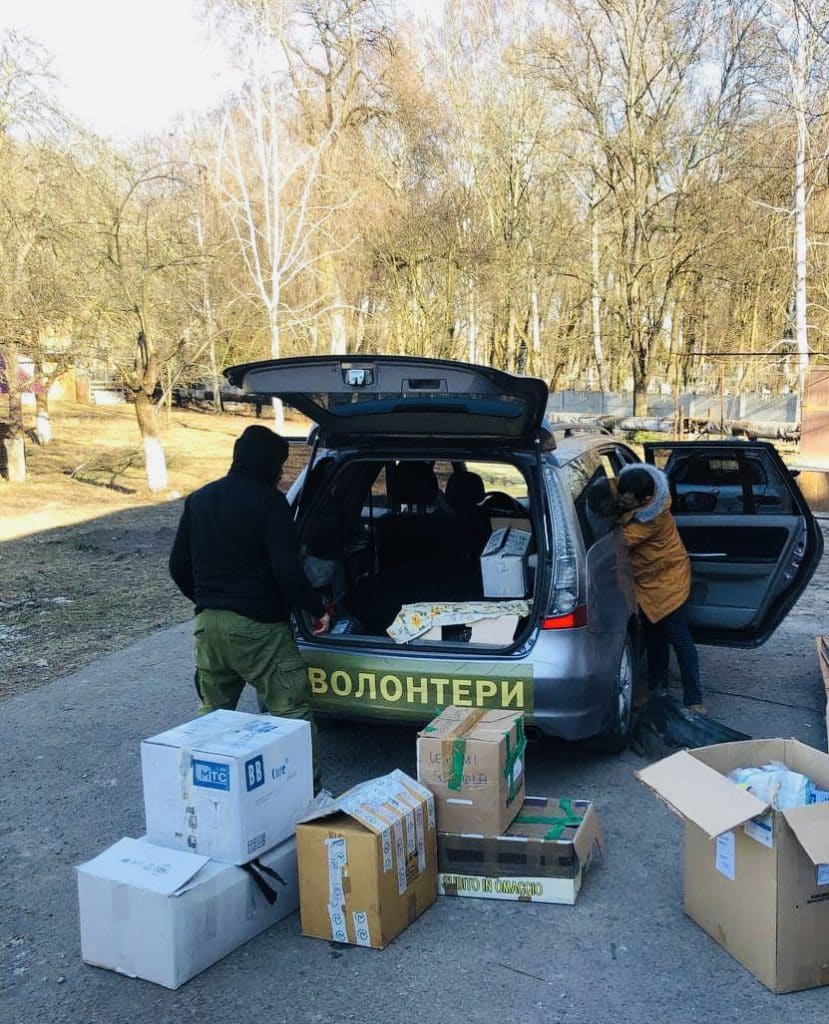
Unpacking help
The primary goal was to take people out, but at the same time, they decided to bring humanitarian aid with them. When they got into the city for the first time, they bought food and diapers and brought gasoline to those who had their own vehicles but couldn’t leave due to lack of fuel. The rides became regular. The day before, those who wanted to flee the town signed up in the Telegram group.
They established contacts with other volunteers: those who collected aid in Kyiv and those who received it in Chernihiv and could define the most urgent needs. “Oksana, Women’s Hundred, Chernihiv”, “Ira, Aid, Kyiv” — that’s how they are recorded in the Telegram messenger. Iryna helped pack everything in Kyiv, and Oksana coordinated it in Chernihiv.
Kostya took over the communication and called the relatives of the people who needed evacuation. Sometimes relatives contacted the volunteers by themselves. Volunteers help people for free. The vast majority of evacuated people were seniors. The younger people asked to take out their grandparents, who did not want to leave their homes until last.
At dawn, Iryna packed their two cars with food, medicine, and sometimes generators. Round trip — 8 hours drive through the fields. When the Russians blew up all the bridges, the town could only be reached by detour. A field is the most open and, therefore, the most dangerous area. It was there that the worst shelling caught them one day.
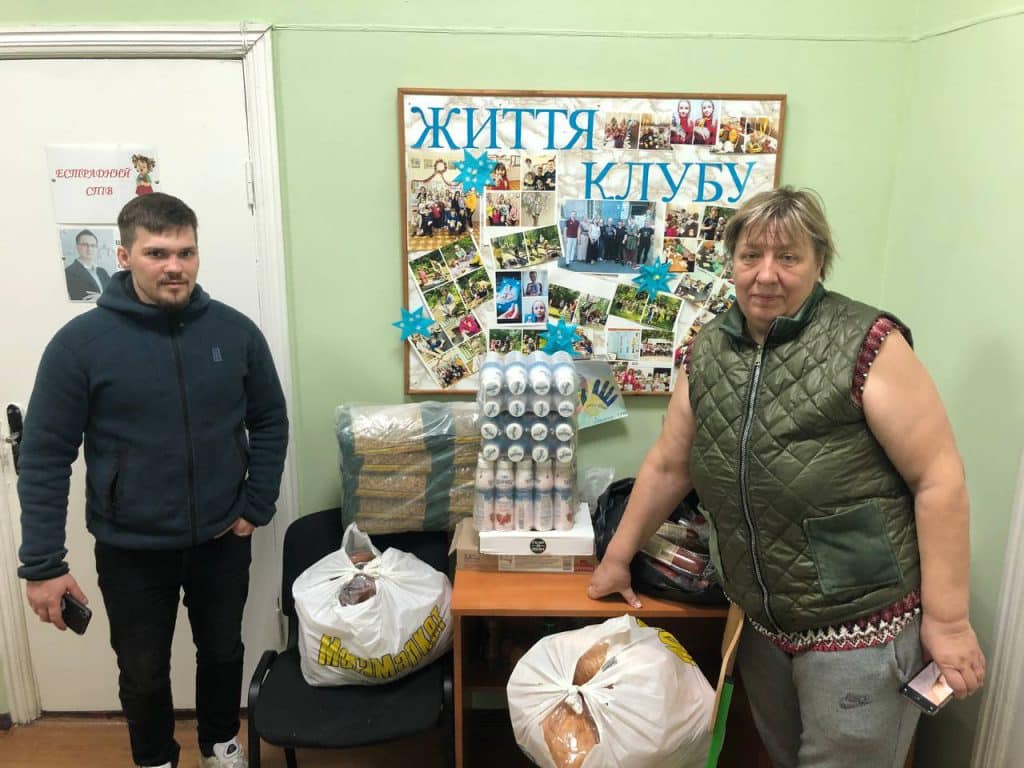
When the Russians blew up all the bridges, the town could only be reached by detour. A field is the most open and, therefore, the most dangerous area.
The Internet doesn’t work, and neither does mobile connection. Therefore, the only way to be in touch is to use a radio connection. The optimal number of people in one car is two. There is still room for people, and it’s not so scary as being there alone. GPS usually works, but also you can find streets using offline maps. Knowing the house number, floor, and apartment, the volunteers looked for people shouting their last names. They have a paper list with surnames. If people were not found in the flats, they went to a nearby shelter.
People were sad, depressed, but grateful. However, some have already developed the skills of Buddhist peace living under constant fire. Kostya enters one of the apartments. An elderly man was frying potatoes (amazingly, he still had gas).
“You have 5 minutes for packing your stuff,” Kostya said. Enemy aircraft were buzzing outside the window.
“No problem,” the man replied calmly, turned the stove over, finished cooking, put potatoes in a container, changed his shoes, and took the dish with him. 4 minutes for everything. It turned out he was a military man.
The guys who organized the evacuation at their own expense and from their own savings say that they never took money from people when they asked, “How much?”. However, they sometimes found cash in the back seats after the ride. Then they spent this money on fuel.
“It’s war. What money? It is enough for us to hear “thank you”. The ways to spend money are limited now. This is a help from the heart. We hope that we are saving people’s lives by taking people out of the shelling”, Vlad says.
“It’s war. What money? It is enough for us to hear “thank you”. The ways to spend money are limited now. This is a help from the heart. We hope that we are saving people’s lives by taking people out of the shelling”
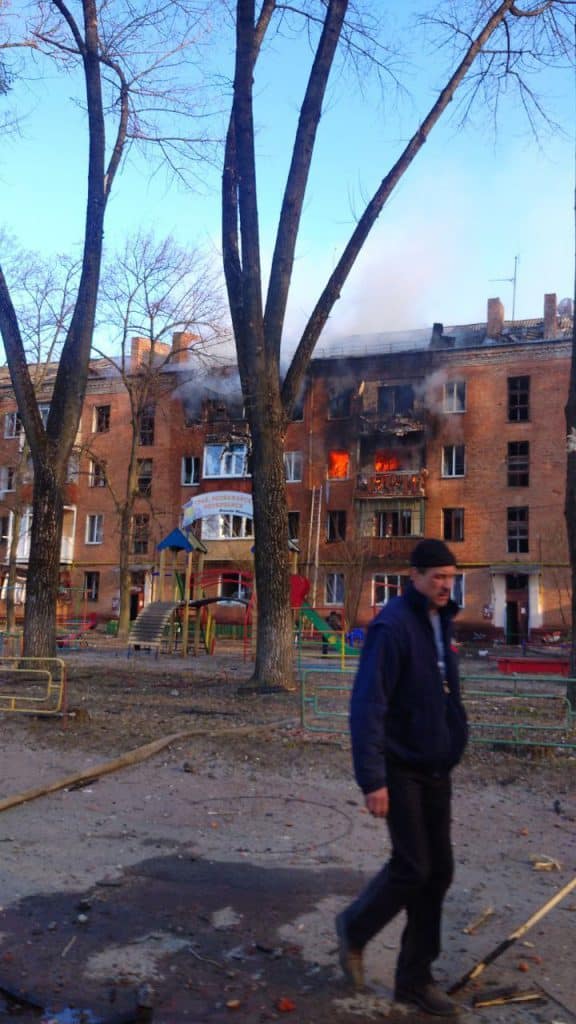
He spent most of his money on gasoline, food, and other aid during the last month like other volunteers here. When their own savings ran out, they started publishing card numbers on social media and fundraised money — from UAH 500 to 1000 for every donation. One volunteer ride costs about UAH 5 000: it includes filling the tank with fuel plus several canisters for people trapped in the town.
While rescuing others, volunteers themselves came under fire more than once, and in front of their eyes, the shells hit residential buildings. “The house is being eaten out like a cake.” Shards flew around, and people in their cars shouted only one thing: “Faster.»
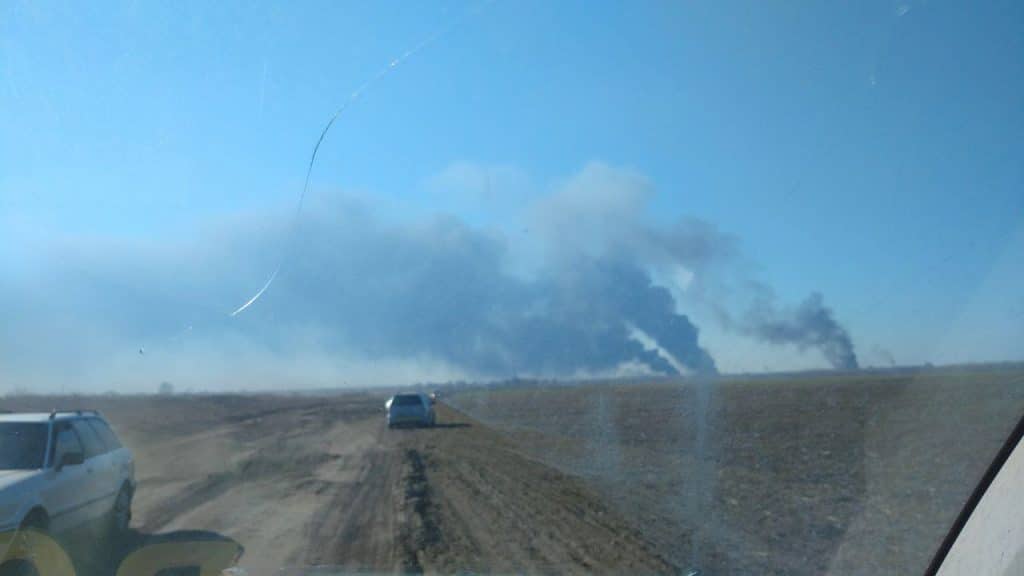
After shelling
For Vitaly Lisunov, these were the third and worst shellings. One shell hit 10 meters away from him and from two friends who were with him on that ride. That happened a day after the Russians blew up the bridge over the Desna, which connected Chernihiv with Kyiv.
After reading the news about the bridge in the morning, they decided to set off. They found out that there is also a pedestrian bridge nearby, which cars can use. Two cars, three people. Vlad’s car got two flat tires about one and a half kilometers from the bridge. The location couldn’t be worse — an open field. Oleg, the driver of the second car, took broken tires and went to the only tire fitting in Chernihiv, which was about to close. He took some food for people in the town. Then the first missile hit the bridge.
When everything calmed down slightly, Vlad ran to meet Oleg to pick up the tires. He was waiting in a traffic jam on the other side of the bridge. When they just started fixing the wheels, shellings began again.
At first, shots can be heard from afar, but now the military is lying down, the sound is louder. The enemy aimed to destroy a military convoy. Shelling calmed down again. Volunteers decided to wait a bit and then get back to the wheels. Meanwhile, other people in the car are turning towards Kyiv. About 20-30 vehicles created a traffic jam.
And shellings started again. This time it was much closer. The guys ran away from the cars and lay down. Lying on his stomach, Vitaly raises his head a little and notices a missile hitting a tree behind their vehicle.
In a bright flash, the ground takes off, and the grass around is on fire. Vitaly had only one thought: if only the shells would have run out sooner. He adds: even if you don’t believe in God, you could believe in anything at that moment.
The guys packed in one Oleg’s car when it calmed down. Another car with bread, food, and flat tires remained in the field. Five minutes after leaving, they felt the back, legs, arms: are they injured? It seemed that everything hurt, but no, everything was fine. They began to smile. Lucky.
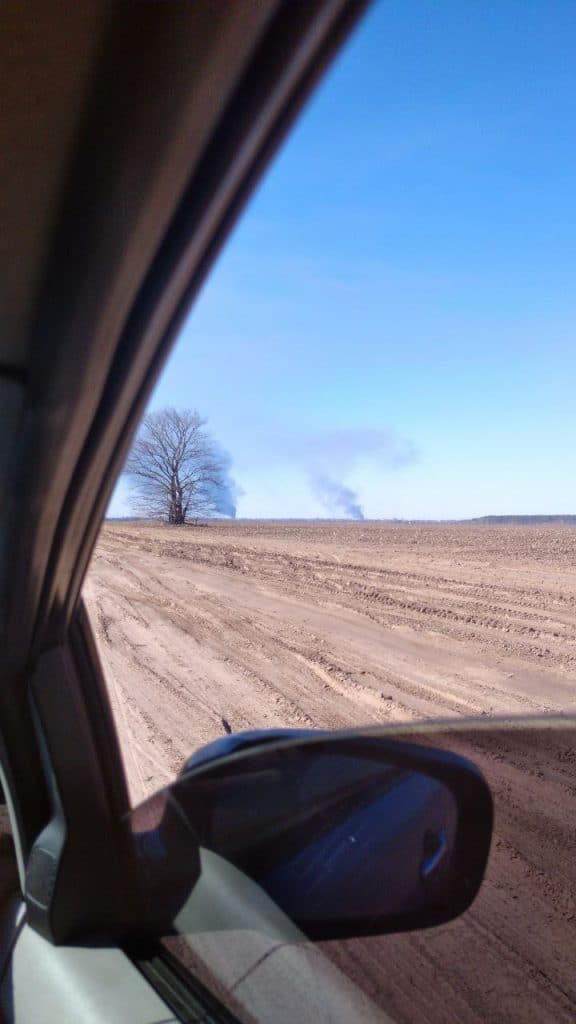
Vitaly told me this story in a sports equipment store — it became a volunteer center during the war when his employees began helping Ukrainian soldiers. The windows were boarded up, boxes and sign removed, and a back door opened. Vitaly loves to go to the mountains. He visited the Carpathians and been to Georgia. This summer, he planned to go to Kazbek.
Vitaly was the only one of the volunteers wearing a bulletproof vest. His cousin, who lives and works in the United States, sent the ammunition. It was a birthday gift for his 28th birthday in March. She will soon send vests and helmets to all his friends.
Vitaly was the only one of the volunteers wearing a bulletproof vest. His cousin, who lives and works in the United States, sent the ammunition. It was a birthday gift for his 28th birthday in March. She will soon send vests and helmets to all his friends.
A few days after the shelling, the guys learned the news from local acquaintances about the abandoned car. They received photos of broken windows and traces of bullets. In a few days, the vehicle was taken back to be repaired.
“Hurt, but not broken,” Vlad jokes. Ready to ride again. Nowadays, Chernihiv is released. There are no more enemy troops there. Thus, they are looking for new routes, forwarding efforts to the liberated villages of the Kyiv region.
“We just want to do a good deed, at least some,” the guys say.
After the war, things will probably be as they used to be in their lives and friendships. At the same time, nothing will be the same as before. The guys have one dream: next time, go to the mountains in the Crimea, take Ukrainian flags, and hang them everywhere.
Translated by Oksana Plakhotniuk

